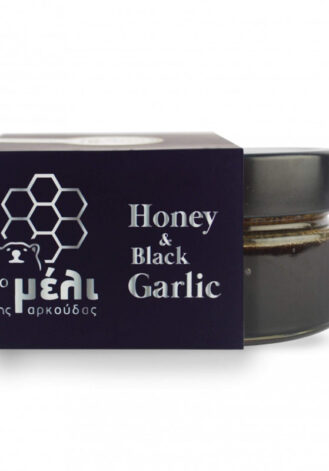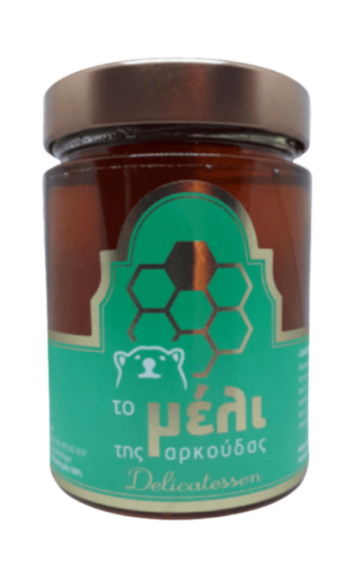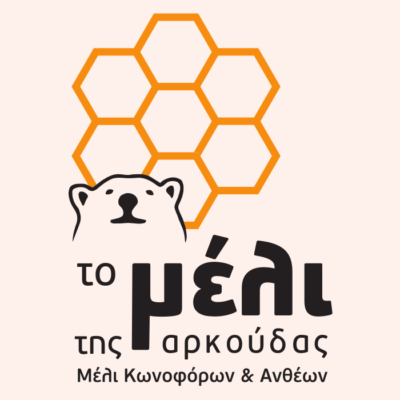
A family matter
For the last 17 years we have been involved in organic beekeeping. It is a conscious choice to protect the environment by maintaining the sustainable nature of beekeeping and at the same time to have full control of the production while maintaining a very high level of quality of our products
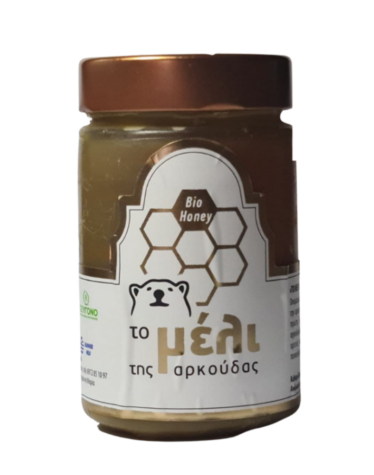
Because our honey is unique

The Bear’s Honey
The beekeeping house, ‘The Bear’s Honey, is a beekeeping entity that began in 1950 fueled by the love and passion of our family who believed in beekeeping as a way of life.
Today, the third generation of our family remains loyally devoted to the wholesome and high-quality production of beekeeping products as well as the creation of new products featuring honey as the key ingredient.
Inspired by the ‘philosophy’ of bees, we try to operate like they do, producing symbiotically, respecting nature, and in a way that positively contributes to human flourishing, health, and wellbeing.
Incorporated in our mission is the education of children and adults about the crucial role that bees play as pollinators of our food. Our beekeeping products are unique due to the rich flora of the wider mountainous region of Drama. The mountainous Drama is a botanical garden, considered the ‘Mecca’ of the Forest Wealth of Greece. The Rhodope Mountains, ‘Menoikio’ Mountain, and ‘Falakro’ Mountain, have the richest flora in Europe, flush with 4,300 species and subspecies of herbs.
Our honey is 100% produced from the riches that this native, mountain vegetation yields.
It is therefore a natural consequence that our selection and flavors of honey collected in this area are sweet ambrosias, offering rich, luscious, and complex tastes, with delicate and intoxicating aromas.
The quality of our honey has been heralded and celebrated by the continuous awards received since 2011 for the best organic honey in the annual BIOLMIEL competition taking place in Italy. Notably, in 2019 we won five awards (2 gold and 3 silver) with a selection of 5 different kinds of honey.
Our production aims at special varieties of honey as well as innovative food products based on honey.
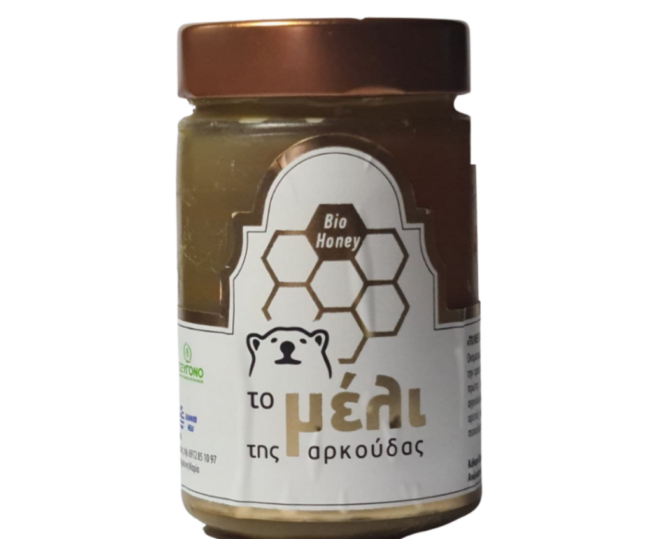
Organic honey in beeswax packaging
Honey has been attributed many beneficial properties since ancient times and is one of the most studied health foods. It has been proven that honey benefits the body in many ways. Thanks to its ingredients, honey has antioxidant, antimicrobial, healing, anti-inflammatory, anti-cancer, & cardioprotective properties. Its main nutritional components are carbohydrates (glucose and fructose), proteins, B vitamins, amino acids, enzymes, trace elements (calcium, copper, iron, magnesium, phosphorus, potassium, zinc) and water.
Proper preservation and storage of honey is a prerequisite for it to retain its biological and therefore its nutritional value. The following should therefore be taken into account:
– Store honey so that it is not exposed to the sun’s rays or excessively illuminated.
– In general, the lower the storage temperature of honey, the better it is preserved.In general, the lower the storage temperature of honey, the better it is preserved. One of the most important ‘enemies’ of honey quality is overheating.
– Honey should be stored in a glass jar, because glass is a neutral material.
Proper preservation of honey, in addition to preserving its biological -therapeutic value, also helps to preserve, color, flavor, and aroma.
Keeping all this in mind regarding the preservation of honey we created the innovative honey packaging which is a glass jar coated with 100% natural wax from our apiary. After extracting our honey by centrifugation, without any heat treatment, and without filtering, we store it directly in the waxed jars. This packaging can guarantee the correct preservation of our honey from the honeycomb to the table for the following reasons:
– The coating of natural wax protects the honey from the light rays of the sun or intense lighting, throughout transport and storage.
– Beeswax begins to soften at 30o Celsius (86o F) and begins to melt at 40o Celsius (104o F). The wax coating on the jar is an indicator if our honey was heated to high temperatures after being standardized. Exposure of honey to high temperatures, above 40o C (40o F), combined with the time it has been exposed to these temperatures significantly affects the characteristics and properties of the honey.

Our Varieties
Chestnut Honey
Oak Honey
Acacia Honey and Paliurus (Paliurus spina-christi)
Wild Native Herbs Honey
Pine Honey from the island of Thassos
Thistle and Linden Honey
Honey Cream from Lavender and Flower Honey
Flower Pollen
Pollen Ladanias ( Cistus incanus)
Propolis
Honey Spreads:
Hazelnut Honey – Honey with a Greek hazelnut paste
Honey with Peanut Butter
Honey with Tahini


